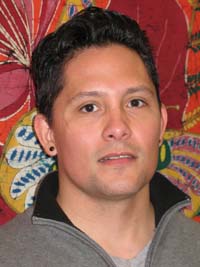Functional heterogeneity of human lung myeloid cells in TB

Abstract
Lung myeloid cells are widely accepted as major contributors to the pulmonary immune response to Mycobacterium tuberculosis (Mtb). These cells are comprised of multiple diverse subsets with highly specialized functions. Recent observations in mice, by Dr. Ernst and others, highlight the importance of myeloid cell diversity on the course of Mtb infection. These studies describe phenotypically distinct subsets of pulmonary myeloid cells with a differential capacity to kill, restrict, or permit growth of Mtb. Few studies have addressed the impact of lung myeloid cell diversity in humans. Most work characterizing Mtb-myeloid cell interactions in humans has focused on alveolar macrophages (AMs) from the airways or non-pulmonary myeloid cells. Thus, very little is known about the role of non-airway/parenchymal myeloid cells of the lung in the immune response to Mtb in humans. Since pulmonary tuberculosis is associated with significant pathology in the lung parenchyma it follows that non-airway lung myeloid cells contribute to the immune response to Mtb infection. The objective of this proposal is to build a platform at the UCSF-CFAR by which cells from whole human lung tissues can be isolated, infected with Mtb (± HIV) and the interactions characterized in mechanistic depth. The Specific Aim is to characterize differences in the interaction between Mtb and major pulmonary myeloid cell subsets. The activities outlined herein will test the hypothesis that distinct subsets of lung myeloid cells differ in their ability to restrict intracellular growth of Mtb. This will be accomplished by leveraging local access to human lung tissues from previously healthy donors (n=20). From these tissues five distinct lung myeloid cell populations will be isolated, infected with virulent strains of Mtb, and assessed for their capacity to restrict or permit the growth of Mtb. We anticipate this work will inform future studies to understand the molecular basis of the differential outcomes of Mtb infection within distinct subsets of human lung cells, and to develop pathways to host-directed therapies that improve the treatment and prevention of TB. As such, this proposal addresses the strategic aim of improving the fundamental knowledge of TB by identifying host factors that may lead to control of disease or progression to active TB.